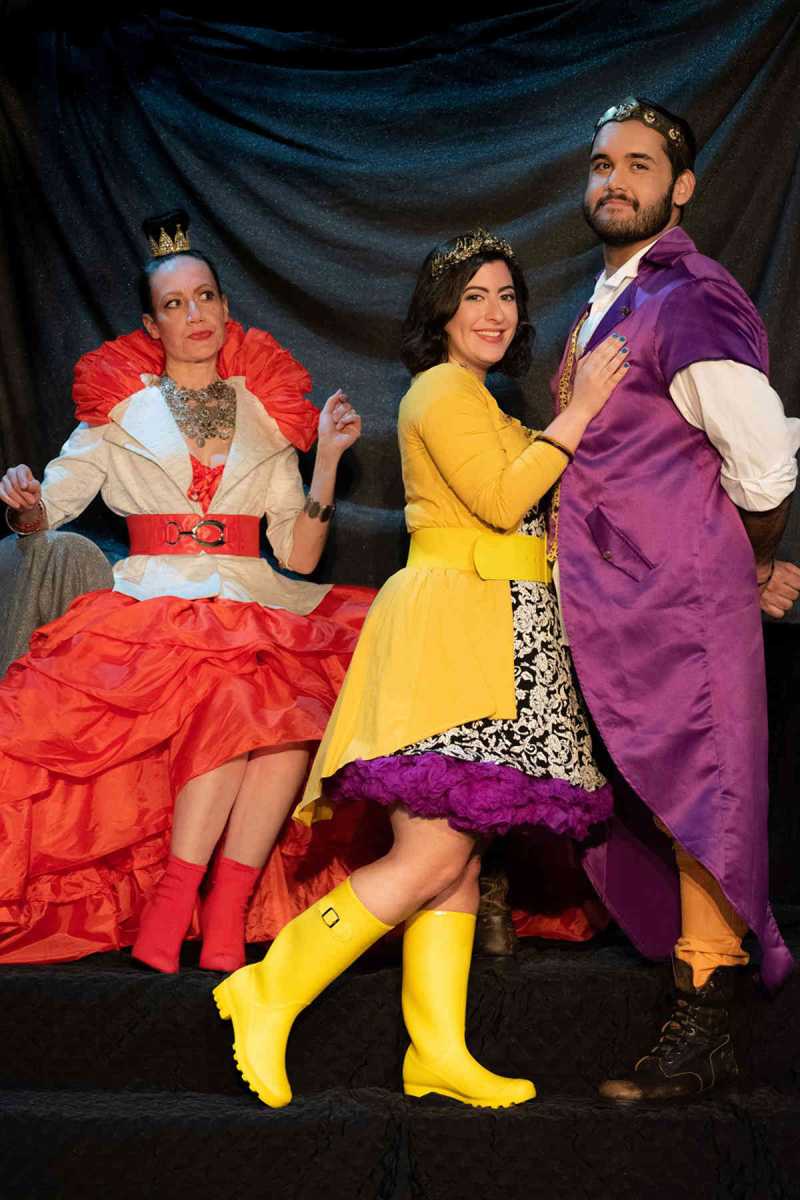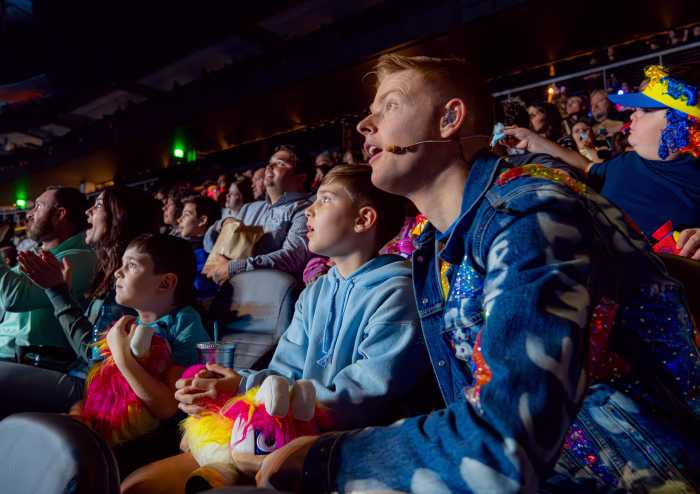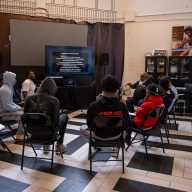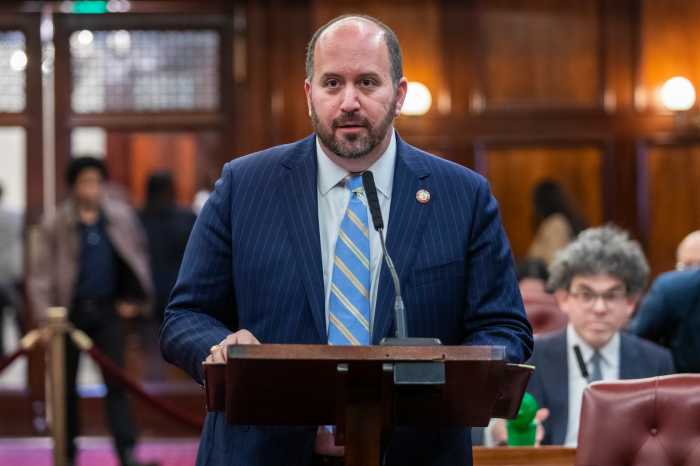This is a “Mattress” that stays woke.
A Park Slope theater company is putting a 21st-century twist on a classic fairy tale musical. “Once Upon a Mattress,” opening at Gallery Players on Feb. 22, offers a feminist, queer interpretation that makes the story accessible to all audience members, regardless of race, gender, sexual orientation, or neurodiversity, according to its director.
“By having all different types of couples on stage and having strong women at the center of the story, it gives the opportunity to tell this fairy tale in a way that levels the playing field and doesn’t privilege one kind of love or one gender over another,” said Barrie Gelles, who lives in Carroll Gardens.
The musical comedy, which debuted off-Broadway in 1959, was already progressive for its time, telling a version of “The Princess and the Pea” in which a rough-and-tumble Princess Winnifred comes to the rescue of sensitive Prince Dauntless. The citizens of the kingdom are forbidden to marry until Dauntless does — but Winnifred must first win the approval of the prince’s overbearing mother, Queen Aggravain, and nonverbal father, King Sextimus.
In the original portrayal, the king’s verbal disability makes him a laughable figure. But in the Gallery Players’ production, he uses modified sign language and a photo-based communication system frequently used by children with autism — changes that Gelles said were made to de-stigmatize nonverbal people.
“So much of the humor is supposed to come from him pantomiming and gesticulating wildly, but our king is not ridiculous in his inability to speak — he’s simply a nonverbal individual,” she said.
Without changing the script, the playmakers also reformed an element that could be problematic in the #metoo era — Sextimus’s relentless pursuit of women. In this version, said Gelles, the women passing through the castle carry tasty desserts, and the king chases after the sweet dishes rather than the women themselves.
“It was a very simple switch without changing any text, to be more respectful of how women are framed within the show,” she said.
Gelles’s production — led by an all-female or transgender creative team — also upends some of the play’s more traditional gender roles, introducing a pair of female knights, several same-sex couples among the eager-to-marry courtiers, and a female Jester.
“We stopped making vocation dependent on gender, and there are all sorts of couples on stage,” she said. The updated production more accurately reflects the modern world, said Gelles.
“As our civilizations and communities grow, our fairy tales need to change,” she said. “With our own lens and framing, we can take it the next step so that it becomes a fairy tale that matches what we need in our world right now.”
“Once Upon a Mattress” at Gallery Players (199 14th St. between Fourth and Fifth avenues in Park Slope, (718) 595–0547, www.galle

























